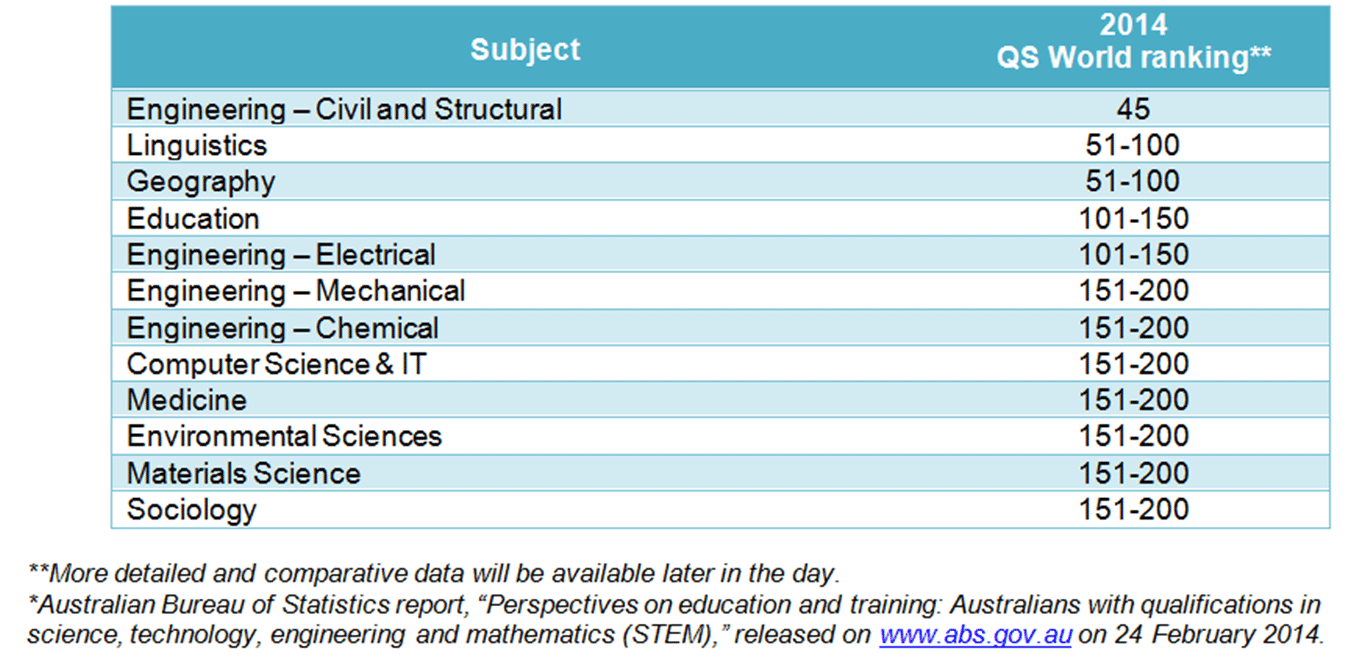University of Newcastle Civil Engineering in world’s top 50
The University of Newcastle's Civil and Structural Engineering discipline has entered the world's Top 50 in the most recent QS World University Rankings by Subject list increasing its ranking by 14 places up to 45th in the world.
Published by QS in the UK today, the University of Newcastle has been ranked in the world's top 100 universities for three subjects and in the top 200 universities for a further nine subjects.
The University's Geography discipline ranked in the top 100 for the second year in a row, and Linguistics, which entered the QS World subject rankings last year, moved into the top 100 in 2014.
The University's other Engineering subjects, Chemical Engineering, Electrical Engineering and Mechanical Engineering, each ranked in the world's top 200. The Environmental Sciences program debuted on the Top 200 list this year.
Vice-Chancellor, Professor Caroline McMillen, said UON's excellent performance in the 2014 QS subject rankings built on the University's growing global reputation for excellence in education, and research and innovation.
"UON consistently ranks in the top three percent of universities in the world and in the top ten universities in Australia for research intensity. The latest QS subject rankings recognise the achievements of our staff who work hard across a range of disciplines to engage as global leaders who drive world-class innovation in our community and region," she said.
The QS rankings were announced on the heels of an Australian Bureau of Statistics report* released earlier this week, which found Australians with university level qualifications in science, technology, engineering and maths had the best career outlook nationwide.
"Through our Faculty of Engineering and Built Environment, which was rated by the Excellence in Research for Australia assessment exercise as one of the top five in the country, UON is delivering quality graduates and research and innovation which contribute to Australia's skills and productivity and to the economic transition of our region," said Professor McMillen.

The QS World University Rankings by Subject are based on surveys of 90,000 academics and graduate employers, alongside research citations and research impact.
For the fourth edition of the QS World University Rankings by Subject, we evaluated 2,838 universities and ranked 689 institutions in total. 130 million of citation attributions were analyzed and we verified the provision of 10,639 programs.
Contact
- Sharon Buckland
- Phone: +612 4985 4049
Related news
- University researchers receive national and international acclaim
- University of Newcastle previews new Gosford building
- Sustainable beauty innovators and blood donation champions among students recognised at Employability Excellence Awards
- Early career researchers awarded more than $2.1m ARC DECRA funding to drive future innovation
- Over 9,000 young lives transformed as Children’s University turns 10
The University of Newcastle acknowledges the traditional custodians of the lands within our footprint areas: Awabakal, Darkinjung, Biripai, Worimi, Wonnarua, and Eora Nations. We also pay respect to the wisdom of our Elders past and present.